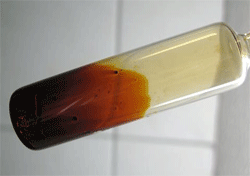The Department of Quantitative Methods in Public Health provides training courses in epidemiology and research, public health statistics and information systems, for the purpose of guiding public health actions.
Head of department and members
Olivier GRIMAUD is the director of the department.
The Department of Quantitative Methods in Public Health is home to 11 researchers/lecturers, each of them affiliated with accredited research teams, and welcomes guest lecturers from foreign universities, two honorary lecturers, one research engineer, PhD students and interns (Master’s students, MPH [Master of Public Health]…).
Research
 The research conducted by the department falls within the main topics covered by the school:
The research conducted by the department falls within the main topics covered by the school:
- Health safety: occupational health and risks, safety of care, safety of health products, epidemic models for emerging diseases
- Health promotion and prevention: maternal and child health, immunisation programmes
- Health and the environment: the contribution of environmental exposures to social health inequalities
- Healthcare service organisation and management: management of chronic diseases (neurological, vascular, kidney)
The department relies on quantitative methods to carry out these research activities. It has access to the necessary expertise to analyse medical-social, healthcare and administrative databases: the PMSI (Programme de médicalisation des systèmes d’information) [Information System Medicalisation Programme], Celtipharm, SNIIRAM (Système national d’information inter-régimes de l’Assurance maladie) [National Health Insurance Cross-Scheme Information System]…
Training
The courses in epidemiology and biostatistics offered by the department are designed to teach future healthcare professionals the foundations for understanding the key tools and indicators used in public health in order to measure the health status of the population and organise the provision of care.
External speakers, both national and international experts regularly participate in the training courses.
The department is involved in the fundamentals of public health services delivered to civil service sectors.
Some courses are taught in English, as part of the MPH (Master of Public Health) and Europubhealth (European Public Health Master), which the department supports different modules of.
As regards continuing education, the Department of Quantitative Methods in Public Health coordinates sessions on the topics of the PMSI, surveillance, health safety and risk management. It has the authority to issue an international certificate of applied epidemiology (IDEA) and its own PMSI Expert Diploma.
The department coordinates the Master 1 course in public health and medical sciences in association with the University of Rennes 1, while also operating as a partner in the Post Master’s in Public Health at the Pasteur/Cnam (conservatoire national des arts et métiers) [National Conservatory of Arts and Crafts] School in Paris.
Partners
The Lecturers/Researchers in the department are linked to accredited research teams:
- the MOS (Management des organisations de santé) [Management of Healthcare Organisations] team, EHESP,
- the EPOPé (Epidémiologie périnatale, obstétricale et pédiatrique) [Perinatal Epidemiology, Obstetric and Paediatric] Unit of the UMR S (unité mixte de recherche scientifique) [joint scientific research unit]1153, Inserm (Institut national de la santé et de la recherche médicale) [National Institute of Health and Medical Research]
- the IRIS (Institut de recherche interdisciplinaire sur les enjeux sociaux) [Institute for Interdisciplinary Research on Social Issues] UMR 8156-997, EHESS (École des hautes études en sciences sociales) [School for Advanced Studies in Social Sciences] CNRS (Centre national de la recherche scientifique) [National Centre for Scientific Research], Inserm, Paris 13),
- the iPLESP (Institut Pierre Louis d’épidémiologie et de santé publique) [Pierre Louis Institute of Epidemiology and Public Health] UMR S 1136
- The Emerging Diseases Epidemiology Unit (Institut Pasteur),
- the Viral Diseases Unit UMR IRD [R&D+i]190
- the CIC-P-203 (Centre d’investigation clinique plurithématique) [Multidisciplinary Clinical Research Centre], (Inserm),
- the LPPS EA 4045 (laboratoire de psychopathologie et processus de santé) [Psychopathology and Health Process Laboratory] (Paris Descartes).
Close partnerships with the Department of Epidemiology of the Mailman School of Public Health, Columbia University in the US, and the Department of Clinical Medicine of the University of Oxford in England are reflected by guest lectures given by professors M. Desvarieux and P. Guerin.
Contacts
Nadine MIGNÉ, department assistant
Nadine.Migne@ehesp.fr – Tél : +33 (0) 2 99 02 25 36


